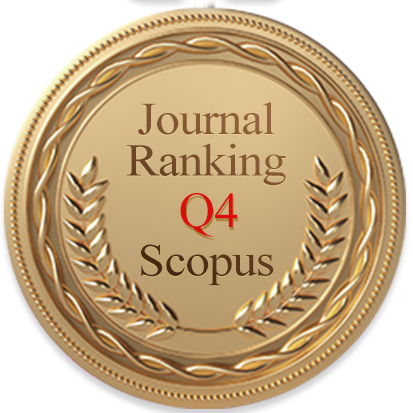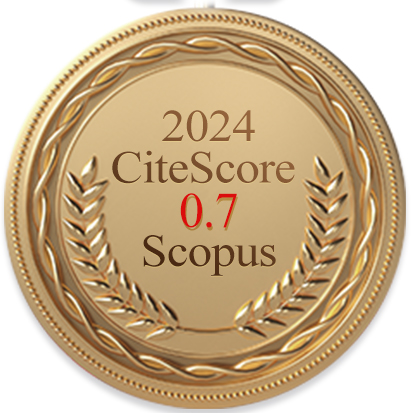The Subak is a traditional Balinese irrigation and farming management system rooted in socio-religious customs and ecological harmony. The sustainability of the Subak, however, is increasingly threatened by contamination from domestic, livestock, and small-scale industrial waste. This study assessed the types, sources, and practices of waste management in Penebel District in Bali with a participatory mapping approach involving surveys, field observations, and focus group discussions with farmers and local officials. Findings from 38 Subak irrigation systems revealed that 52.63% of the Subak areas were primarily affected by domestic waste while 21.05% faced mixed contamination from domestic and livestock waste. Among all, the predominant waste types included 44.74% of organic materials, such as manure and agricultural residues, and 34.21% of inorganic materials like plastics and packaging. Alarmingly, 57.89% of the Subaks left waste untreated in irrigation channels whereas 41.1% of the households disposed waste directly into drainage or irrigation ditches. Only a small portion, 21.06%, practiced composting. These informal waste practices were exacerbated by limited institutional support and deteriorated irrigation infrastructure, as 28.95% of the Subak irrigation channels were in damaged condition. In this connection, this study also shed light on the imperative for differentiated and community-based waste management strategies, aligned with the principles of organic farming. Recommended interventions included organic waste composting, structured inorganic waste collection, Awig-Awig revitalization, and environmental education to change local behaviors. The integration of participatory mapping with environmental assessment provided a practical and culturally relevant tool for empowering the Subak communities with sustainable waste and water management. Protecting the Subak landscape from waste is indispensable for safeguarding both agricultural productivity and unique cultural heritage in Bali.
This work aims to evaluate the introduction of biomass flame weeding (FW) as a carbon-neutral technology for weed management in agricultural enterprises. The case study focuses on a biodynamic farm in the Molise region (Italy) introducing FW as a complementary technology alongside the traditional mechanical methods. In the project layout FW is applied exclusively around the trunks of olive and vine crops. The case study foresees the generation of thermal energy required for FW using a gasifier powered directly by the woody biomass waste produced by the farm. The production of biochar as a solid by-product of the gasification process was also examined. The economic analysis was conducted by structuring a simulation based on the Monte Carlo method, applied to the Net Present Value (NPV). Three output parameters were taken into consideration: NPV at the final year of investment, Internal Rate of Return and the payback period. For each parameter, a corresponding probability distribution was established. The results indicate that the average NPV can range from €6,342.27 to €9,796.06. Furthermore, the probability that the payback period is between zero and fifteen years can vary between 78.2% and 83.9%, suggesting a strong capacity for the project to be self-sustaining.
Inpari Nutri Zinc rice, a biofortified variety enriched with zinc (Zn), has been developed to enhance the nutritional quality of staple crops and address widespread micronutrient deficiencies. Zinc plays a critical role in human health, particularly for children, pregnant women, and lactating mothers, and its deficiency has been linked to stunting. To evaluate the long-term viability of Inpari Nutri Zinc rice cultivation, a multidimensional sustainability assessment was conducted in Bantul Regency, Indonesia, with data collected from 125 farmers in Selopamiro, Wukirsari, and Kebonagung Villages. The Rapid Appraisal (RAP) approach, based on a multi-dimensional scaling (MDS)-based method, was applied to assess sustainability across economic, social, and ecological dimensions. The overall sustainability index was estimated at 62.86%, categorizing the farming system as moderately sustainable. Dimension-specific results indicated that the economic dimension scored 48.79% (unsustainable), the social dimension 66.15% (moderately sustainable), and the ecological dimension 73.65% (moderately sustainable), with a 24.86% disparity between the highest and lowest scores. Model robustness was confirmed by a Standardized Residual Sum of Squares (STRESS) value of 0.16 and a Coefficient of Determination (R²) value of 0.94, demonstrating high reliability and explanatory strength. The economic dimension emerged as the weakest component, underscoring the need for targeted interventions such as guaranteed government procurement of harvests and the integration of biofortified rice into community health programs in areas vulnerable to stunting. Leveraging factors were identified as market access availability for the economic dimension, farmer–extension worker relations for the social dimension, and water quality management for the ecological dimension. These attributes represent critical entry points for enhancing the sustainability of Inpari Nutri Zinc rice farming. The findings provide evidence-based insights for policymakers, extension services, and development agencies to strengthen economic resilience while maintaining social and ecological sustainability in biofortified rice farming systems.
The organic rice supply chain in Indonesia, particularly in Banten Province, is characterized by high complexity and the involvement of multiple actors, which creates challenges related to transparency, traceability, and product authenticity. These issues reduce consumer trust and complicate regulatory supervision in organic farming systems. This study aims to design and evaluate a blockchain-based traceability model to enhance transparency, ensure product authenticity, and support food safety compliance in the organic rice supply chain. This research employs the Design Science Research Methodology (DSRM), encompassing problem identification, objective definition, artifact design and development, demonstration, and evaluation. Data were collected through interviews, field observations, and Focus Group Discussions (FGDs) involving organic rice supply chain actors, government regulators, and experts. The proposed model was empirically evaluated using Partial Least Squares–Structural Equation Modeling (PLS-SEM) based on responses from 220 participants. The resulting Organic Rice-Supply Chain Traceability (Organic Rice-SCT) model integrates farmers, farmer cooperatives, business actors, retailers, consumers, and government agencies within a blockchain-based system supported by quick response (QR) code technology. The findings indicate that operational excellence, cultural suitability, environmental conditions, quality assurance, and organizational resources significantly influence blockchain adoption. Conversely, data management, supply chain integration, technology maturity, and knowledge management show no significant effect. The model demonstrates its capability to improve supply chain visibility, reduce information asymmetry, strengthen regulatory oversight, and support compliance with Fresh Plant-Based Food (Pangan Segar Asal Tumbuhan, PSAT) certification. In conclusion, this study provides a validated blockchain-based traceability model that enhances transparency and trust in organic rice supply chains. Practically, the model supports stakeholders and regulators in ensuring food safety and product authenticity, while theoretically contributing to the literature on blockchain adoption in sustainable agricultural systems.
This study investigated the impact of hi-tech innovation on environmental sustainability in the supply chains of organic agri-startups by using an Ordinary Least Squares (OLS) model. The results indicated that environmental sustainability in organic agri-startups was driven most strongly by eco-friendly production (0.440), followed by blockchain (0.269) and mobile platforms (0.250), while farm-to-table logistics (−0.093) and nano-technology (–0.033) showed negative impacts. Using a regression-based prioritisation approach, the study revealed that organic agri-startups adopted hi-tech innovation pragmatically. They could then prioritise technologies to enhance production processes, ensure organic compliance, and stabilise operations under environmental uncertainty. Built upon these findings, the study strengthened the literature on sustainable and organic entrepreneurship by demonstrating how behavioural constructs shaped decision making. This divergence from previous studies contributes to behavioural decision theory in agri-startups, thus highlighting the importance of analyzing not only what entrepreneurs value but also what they choose, given constraints in resources, knowledge, and operational risk.

















